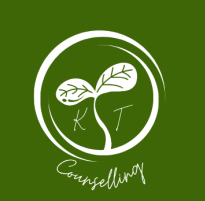Losing a loved one is one of the most painful experiences a person can endure. Grief can feel overwhelming, unpredictable and deeply isolating. Over time, the sharpness of pain may become more muted, but the sense of loss can feel even more profound. You may feel frozen in time, stuck in a kind of grief limbo, dreading the thought of moving forward with your life. It may feel like the last thing you want to do is rebuild. You might not even feel comfortable sharing these feelings out loud.
Whether it’s the death of a loved one, the end of a relationship, the loss of a job, the loss of health, or the life you once knew — loss takes many forms. Each brings its own unique weight, but they all stir up powerful emotions that can leave us feeling numb, disoriented, and alone.
Grief: A Shared Human Experience, Yet Deeply Individual
One of the hardest parts of grief is that no one else can feel it exactly as you do — yet it’s something every human being will face at some point. There is no “right” way to grieve and no timetable for when you should feel “better.” Grief is not a straight line but a winding path with ups and downs, quiet days and waves of sudden sadness.
Memories may surface unexpectedly — a song on the radio, a scent in the air, an empty chair at the table. You might find yourself smiling at a memory one moment, and brought to tears the next. All of this is normal. Grief asks us to feel our feelings, even the ones we’d rather push away.
How Long Will This Last?
One of the questions many people ask is: How long will I feel like this? The truth is, there is no clear answer. Grief is not something to be “cured” but something to be carried and integrated into your life over time. Some days you may feel you are coping well, only for a wave of sorrow to knock you over when you least expect it. Anniversaries, birthdays, holidays — can often reawaken feelings of loss.
Over time, with care and support, the pain often softens. It may never completely vanish, but it can become less raw, less consuming. You may find that the memories that once caused you pain start to bring warmth, connection, and even joy.
Navigating Loss and Coping with Grief
Coping with grief means finding ways to acknowledge and recognise your feelings rather than shutting them away. Here are some ideas that may help:
- Talk about it. Sharing your story can lighten the load. Trusted friends and family can be a lifeline, but sometimes you may need someone outside your circle. A professionally trained and qualified counsellor can help you sit with your feelings without judgement.
- Try journaling. Writing down your thoughts and memories can help you process your emotions. It’s a safe space to be honest about the feelings you may not want to share with others — anger, guilt, regret, longing.
- Connect with support groups. Sometimes talking to people who have been through a similar loss helps you feel less alone. Local and online bereavement groups can be comforting spaces where your grief is understood.
- Spend time in nature. Simple moments — fresh air, birdsong, the rhythm of walking — can be soothing when you feel overwhelmed.
- Be gentle with yourself. Grief can be exhausting. Rest when you need to, eat nourishing food, and give yourself permission to do things that bring small moments of comfort.
When Grief Feels Too Heavy
If you ever feel that your grief is too much to carry alone, please reach out for help. You do not have to navigate loss in isolation.
- Cruse Bereavement Support – 0808 808 1677
- Samaritans (for anyone in distress) – 116 123
- Mind (mental health support) – 0300 123 3393
Books like “Grief Works” by Julia Samuel and “The Year of Magical Thinking” by Joan Didion offer stories and insights that remind us we are not alone in our sorrow.
A Gentle Reminder
You do not have to rush your healing. Grief is a process, not a race. Some days you may feel strong enough to take small steps forward, other days you may feel like you’ve gone backwards — this too is part of the journey. Together, with support from friends, nature, and a caring professional, you can begin to look more closely at your loss. Beneath the rubble of your grief, there is still a foundation of your values — love, compassion, courage — that you can lean on and build from.
Above all, remember: it’s okay to ask for help. It’s okay to take your time. And it’s okay to hope for moments of peace again, even when it feels impossible right now.
If you would like support in navigating your grief and loss, please don’t hesitate to reach out. You do not have to do this alone.
